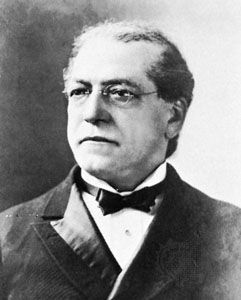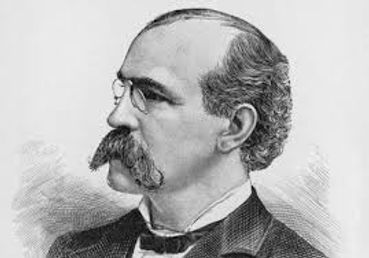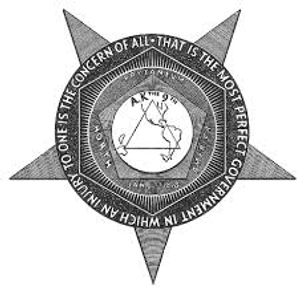
Author: Kevin Daley
History According To Kevin Daley
Industrial Revolution
Samuel Gompers
Samuel Gompers was born on January 27, 1850, to a working class family in London, England ("Samuel Gompers | American Labour Leader."). Like many young people at the time, Samuel began working along side his father at the age of ten, rolling cigars and starting his life as a laborer. At thirteen years old, Gompers moved, along with his entire family, to a New York City tenement, where experienced the life of the American working class (“Samuel Gompers”).
After years of hard work and plenty of experience leading local labor unions, such as the Cigar Markers’ International Union, Gompers was elected as the first (and longest presiding) president of the American Federation of Labor (“American Federation of Labor”). The AFL, as it was known, was a group founded on basic necessities. Unlike other Unions, the AFL stayed away from the political scene as much as possible, and focused more on the treatment of workers ("Samuel Gompers | American Labour Leader.").
Terence Powderly
Born in Pennsylvania on January 22, 1849, Terence Vincent Powderly differed from Samuel Gompers in quite a few ways. At a young age, Powderly was involved in tough manual labor jobs, working on railroad projects and steel production (Encyclopedia of World Biography 420). Powderly often showed interest in labor unions and in 1879 became the head of the then small, secret society known as the Knights of Labor. Upon his ascension to leadership, Powderly worked to undo the secretive nature of the group in order to gain the approval of the Catholic Church, and thereby expand the collective’s numbers (“Knights of Labor” & “Terence Powderly”).
While the Knights did face a fair amount of success along the way, staging a decent number of strikes, the group’s expansion eventually became too rapid and eventually led to the Union’s demise (“Brinkley 446”). Other factors in the group’s weakness included the fact that Powderly was not fully invested in his roll as a leader, and often spent more time pursuing other interests, such as studying law. It should be noted as well that Powderly had the reputation of being a bit of a snob (Encyclopedia of World Biography 420-421).
The Knights of Labor
The Knights of Labor was a group with its own fair share of success. With Powderly at the helm, the group worked to eradicate child labor and establish an eight-hour workday (Brinkley 446). These victories, however, were not the union’s main focus. Powderly had more of a vision for total economic reform. This mindset, however, in which improved labor conditions were regarded as “small” accomplishments, is often regarded as one of the reasons for the Knights’ eventual collapse; unfortunately for this labor union, they never saw much fulfillment of their “bigger picture” agenda (“Terence Powderly”).
The American Federation of Labor
The AFL was a more conservative group, built around establishing basic rights of workers. The group focused more on smaller trades, and skilled workers, never intending to expand across the entire laboring class (“American Federation of Labor”). One of the first goals of the AFL was a national 8-hour workday; the union collaborated with other groups to stage a large-scale strike in order to achieve this on May 1, 1886. Gompers initially established an anti politicking policy for the union, but then realized that political action was important, and in order for the AFL to succeed it would have to take an independent political standpoint, not partnering with any particular party(“Samuel Gompers”).
Gompers Vs. Powderly
At the end of the day, it seems that the main difference between Gompers and Powderly was that while Powderly looked to the future and hoped for success, Gompers got down to the task at hand. Gompers stuck to the driving force behind all labor unions, and allowed those foundations to be his guide, in doing this, he led a very run of the mill, but successful nonetheless, union that could actually achieve its own goals. Powderly on the other hand, was more of a dreamer. He led his Union to pursue a more abstract goal, and in doing so led them down a destructive path.
Bibliography
-
"Terence Powderly." Terence Powderly. N.p., n.d. Web. 27 Jan. 2016. <http://pabook2.libraries.psu.edu/palitmap/bios/Powderly__Terence.html>.
-
"Samuel Gompers | American Labour Leader." Encyclopedia Britannica Online. Encyclopedia Britannica, n.d. Web. 27 Jan. 2016. <http://www.britannica.com/biography/Samuel-Gompers>.
-
"Knights of Labor." History.com. A&E Television Networks, n.d. Web. 27 Jan. 2016. <http://www.history.com/topics/knights-of-labor>.
-
"American Federation of Labor." Ushistory.org. Independence Hall Association, n.d. Web. 27 Jan. 2016. <http://www.ushistory.org/us/37d.asp>.
-
“Samuel Gompers.” Web. <http://www.aflcio.org/About/Our-History/Key-People-in-Labor-History/Samuel-Gompers-1850-1924>.
-
Brinkley, Alan. The Unfinished Nation: A Concise History of the American People. Boston: McGraw-Hill, 2004. Print.
-
Encyclopedia of World Biography. Detroit: Gale Research, 1998. Print.


